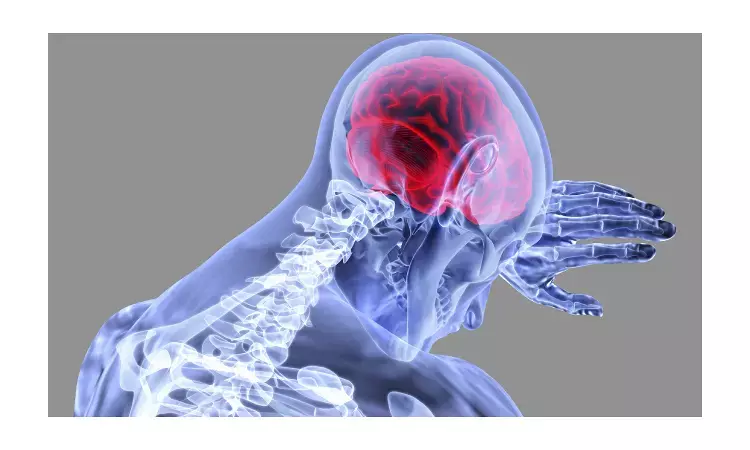- Home
- Medical news & Guidelines
- Anesthesiology
- Cardiology and CTVS
- Critical Care
- Dentistry
- Dermatology
- Diabetes and Endocrinology
- ENT
- Gastroenterology
- Medicine
- Nephrology
- Neurology
- Obstretics-Gynaecology
- Oncology
- Ophthalmology
- Orthopaedics
- Pediatrics-Neonatology
- Psychiatry
- Pulmonology
- Radiology
- Surgery
- Urology
- Laboratory Medicine
- Diet
- Nursing
- Paramedical
- Physiotherapy
- Health news
- Fact Check
- Bone Health Fact Check
- Brain Health Fact Check
- Cancer Related Fact Check
- Child Care Fact Check
- Dental and oral health fact check
- Diabetes and metabolic health fact check
- Diet and Nutrition Fact Check
- Eye and ENT Care Fact Check
- Fitness fact check
- Gut health fact check
- Heart health fact check
- Kidney health fact check
- Medical education fact check
- Men's health fact check
- Respiratory fact check
- Skin and hair care fact check
- Vaccine and Immunization fact check
- Women's health fact check
- AYUSH
- State News
- Andaman and Nicobar Islands
- Andhra Pradesh
- Arunachal Pradesh
- Assam
- Bihar
- Chandigarh
- Chattisgarh
- Dadra and Nagar Haveli
- Daman and Diu
- Delhi
- Goa
- Gujarat
- Haryana
- Himachal Pradesh
- Jammu & Kashmir
- Jharkhand
- Karnataka
- Kerala
- Ladakh
- Lakshadweep
- Madhya Pradesh
- Maharashtra
- Manipur
- Meghalaya
- Mizoram
- Nagaland
- Odisha
- Puducherry
- Punjab
- Rajasthan
- Sikkim
- Tamil Nadu
- Telangana
- Tripura
- Uttar Pradesh
- Uttrakhand
- West Bengal
- Medical Education
- Industry
DAPT using cilostazol, a therapeutic option for prevention of recurrent stroke without bleeding risk: Study

Japan: Dual antiplatelet therapy (DAPT) is the combination of aspirin and one ADP-receptor blocker. To reduce the risk of acute stent thrombosis the period of DAPT is preferable with prasugrel or ticagrelor. The long-term benefit of dual antiplatelet therapy (DAPT) over single antiplatelet therapy (SAPT) for the prevention of recurrent stroke isn't known in patients with intracranial arterial stenosis.
A randomized trial by Shinichiro Uchiyama and team revealed that DAPT using cilostazol is superior to SAPT with clopidogrel or aspirin for the prevention of recurrent stroke and vascular events without increasing bleeding risk among patients with intracranial arterial stenosis after stroke. The findings of the study are published in the Journal of the American Heart Association (JAHA).
The objective of the study was to compare the efficacy and safety of DAPT with cilostazol and clopidogrel or aspirin to those of SAPT with clopidogrel or aspirin in patients with intracranial arterial stenosis.
The patients were recruited from Cilostazol Stroke Prevention Study for Antiplatelet Combination trial, a randomized controlled trial in high‐risk Japanese patients with ischemic stroke. The researchers compared the vascular and hemorrhagic events between DAPT and SAPT in patients with ischemic stroke and symptomatic or asymptomatic intracranial arterial stenosis of at least 50% in a major intracranial artery.
Patients were divided into two groups: 275 were assigned to receive DAPT and 272 patients SAPT.
The researchers found that the risks of ischemic stroke (hazard ratio [HR], 0.47); and a composite of stroke, myocardial infarction, and vascular death (HR, 0.48) were lower in DAPT than SAPT, whereas the risk of severe or life‐threatening bleeding (HR, 0.72) did not differ between the 2 treatment groups.
Uchiyama and team concluded that "DAPT using cilostazol was superior to SAPT with clopidogrel or aspirin for the prevention of recurrent stroke and vascular events without increasing bleeding risk among patients with intracranial arterial stenosis after stroke."
Reference: https://doi.org/10.1161/JAHA.121.022575
Medical Dialogues consists of a team of passionate medical/scientific writers, led by doctors and healthcare researchers. Our team efforts to bring you updated and timely news about the important happenings of the medical and healthcare sector. Our editorial team can be reached at editorial@medicaldialogues.in.
Dr Kamal Kant Kohli-MBBS, DTCD- a chest specialist with more than 30 years of practice and a flair for writing clinical articles, Dr Kamal Kant Kohli joined Medical Dialogues as a Chief Editor of Medical News. Besides writing articles, as an editor, he proofreads and verifies all the medical content published on Medical Dialogues including those coming from journals, studies,medical conferences,guidelines etc. Email: drkohli@medicaldialogues.in. Contact no. 011-43720751


